Cover
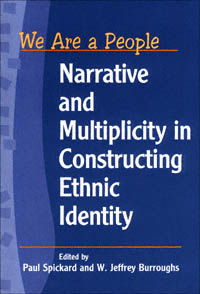
| title | : | We Are a People : Narrative and Multiplicity in Constructing Ethnic Identity Asian American History and Culture |
| author | : | Spickard, Paul R. |
| publisher | : | Temple University Press |
| isbn10 | asin | : | 1566397235 |
| print isbn13 | : | 9781566397230 |
| ebook isbn13 | : | 9780585389004 |
| language | : | English |
| subject | Ethnicity, Indigenous peoples, Immigrants--Ethnic identity, Multiculturalsim. |
| publication date | : | 2000 |
| lcc | : | GN495.6.W4 1999eb |
| ddc | : | 305.8 |
| subject | : | Ethnicity, Indigenous peoples, Immigrants--Ethnic identity, Multiculturalsim. |
Page i
We Are a People
Page ii
This page intentionally left blank
Page iii
We Are a People
Narrative and Multiplicity in Constructing Ethnic Identity
EDITED BY
Paul Spickard and W. Jeffrey Burroughs

T E M P L E U N I V E R S I T Y P R E S S
P H I L A D E L P H I A
Page iv
Temple University Press, Philadelphia 19122
Copyright 2000 by Temple University
All rights reserved
Published 2000
Printed in the United States of America
 The paper used in this publication meets the requirements of the American National Standard for Information SciencesPermanence of Paper for Printed Library Materials, ANSI Z39.48-1984.
The paper used in this publication meets the requirements of the American National Standard for Information SciencesPermanence of Paper for Printed Library Materials, ANSI Z39.48-1984.
Library of Congress Cataloging-in-Publication Data
We are a people: narrative and multiplicity in constructing ethnic identity / edited by Paul Spickard and W. Jeffrey Burroughs.
p. cm.
Includes bibliographical references.
ISBN 1-56639-722-7 (alk. paper). ISBN 1-56639-723-5 (pbk.: alk. paper)
1. Ethnicity. 2. Indigenous peoples. 3. ImmigrantsEthnic identity. 4. Multiculturalism. I. Spickard, Paul R., 1950 . II. Burroughs, W. Jeffrey.
GN495.6.W4 1999 |
305.8DC21 | 99-14398 |
Lyrics of I'm An Indian Too by Irving Berlin reprinted on page 249. Copyright 1946 by Irving Berlin. Copyright Renewed. International Copyright Secured.
All Rights Reserved. Reprinted by Permission.
Page v
To Lonia Burroughs and Jim Spickard
Page vi
This page intentionally left blank
Page vii
Contents
Acknowledgments ix |
|
| WE ARE A PEOPLE 1 |
Paul Spickard and W. Jeffrey Burroughs |
|
Part I: The Indeterminacy of Ethnic Categories: The Problem and a Solution |
|
| MULTIPLE ETHNICITIES AND IDENTITY INTHE UNITED STATES 23 |
Mary C. Waters |
|
| THAT'S THE STORY OF OUR LIFE 41 |
Stephen Cornell |
|
Part II: Construction of Ethnic Narratives: Migrant Ethnicities |
|
| BLACK IMMIGRANTS IN THE UNITED STATES 57 |
Violet M. Johnson |
|
| THE CHILDREN OF SAMOAN MIGRANTS IN NEW ZEALAND 70 |
Cluny Macpherson and Laavasa Macpherson |
|
Part III: Ethnicities of Dominated Indigenous Peoples |
|
| NARRATING TO THE CENTER OF POWER IN THE MARSHALL ISLANDS 85 |
Phillip H. McArthur |
|
Page viii
| DISCOVERED IDENTITIES AND AMERICAN INDIANSUPRATRIBALISM 98 |
Stephen Cornell |
|
| THE ANATOMY OF SCIENTIFIC RACISM: RACIALISTRESPONSES TO BLACK ATHLETIC ACHIEVEMENT 124 |
Patrick B. Miller |
|
| I'M NOT A CHILENO! RAPA NUI IDENTITY 142 |
Max E. Stanton |
|
Part IV: Emerging Multiethnic Narratives |
|
| MULTIRACIAL IDENTITY IN BRAZIL AND THEUNITED STATES 153 |
G. Reginald Daniel |
|
| MIXED LAUGHTER 179 |
Darby Li Po Price |
|
| PUNJABI MEXICAN AMERICAN EXPERIENCESOF MULTIETHNICITY 192 |
Karen Leonard |
|
Part V: Theoretical Reflections |
|
| RETHINKING RACIAL IDENTITY DEVELOPMENT 205 |
Maria P. P. Root |
|
| THE CONTINUING SIGNIFICANCE OF RACE 221 |
Lori Pierce |
|
| WHAT ARE THE FUNCTIONS OF ETHNIC IDENTITY? 229 |
Cookie White Stephan and Walter G. Stephan |
|
| ETHNICITY, MULTIPLICITY, AND NARRATIVE: PROBLEMS AND POSSIBILITIES 244 |
W. Jeffrey Burroughs and Paul Spickard |
|
Contributors 255 |
Page ix
Acknowledgments
This book began with a conference held in the stimulating intellectual and intercultural climate of Brigham Young University-Hawai'i, funded by that institution's Division of Social Sciences and the Institute for Polynesian Studies. We are grateful to President Eric Shumway, Vice-President Olani Durrant, and Director of Continuing Education Theresa Bigbie, all at BYUH, to President Lester Moore of the neighboring Polynesian Cultural Center, and to their excellent colleagues for their generosity and hospitality. The BYUH Division of Social Sciences and the University of California-Santa Barbara Asian American Studies Department have supported the subsequent editing of the manuscript. Janet Francendese of Temple University Press has been a rigorous and supportive guide throughout the editing and production stages. Lynne Frost (Berliner Inc.) and Jennifer French (Temple University Press) shepherded this project to completion with efficiency and grace.
Among the participants in that original conference whose ideas and mana helped shape this book, but whose words we were not able to include in the final volume, are: Melani Anae, Arthe Anthony, Margaret Baker, Jeff Belnap, David Bertelson, Wurlig Borchigud, Dan Boylan, Maria Brave Heart-Jordan, Cy Bridges, David Chappell, Allen Chun, Chad Compton, Patricia Delaney, Yen Le Espiritu, Rowena Fong, Xuanning Fu, Inoke Funaki, Dru Gladney, Theo Gonzalves, Karina Kahananui Green, Henry Gutierrez, Marilyn Halter, Marie Hara, Tim Heaton, Mark Helbling, Debbie Hippolite Wright, Ann-Marie Horvath, Alan Howard, Ron Jackson, Cardell Jacobson, Larry Jensen, Jon Jonassen, Kelly Kautz, Nora Keller, David Knowlton, Roberta Lang, Greg Mark, Tony Marsella, Davianna McGregor, Arapata Meha, Laurie Mengel, Taima Moeke-Pickering, Sandra Morrison, Sue Nance, Dorri Nautu, Ann Ngatai, Linda Nikora, Jonathan Osorio, Barbara Peterson, Jan Rensel, Linda Revilla, Keith Roberts, Dale Robertson, Malka Shabtay, Tom Svensson, Monique Taylor, William Kauaiwiulaokalani Wallace III, Gale Ward, Kathleen Ward, Hillary Weaver, and Vernice Wineera. We are grateful to them all.
Next page

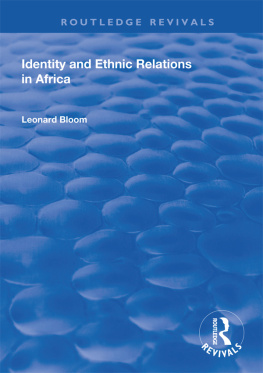
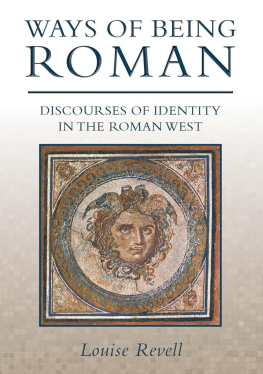
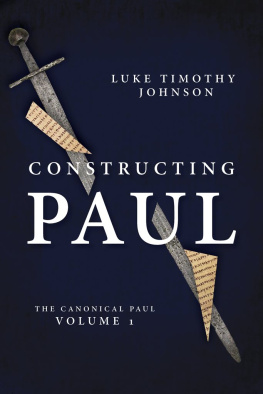
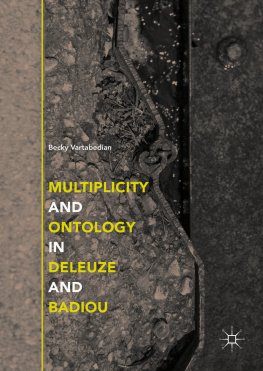

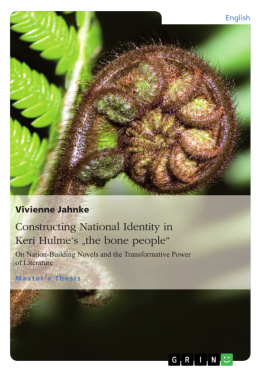
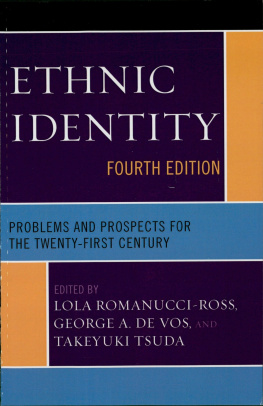
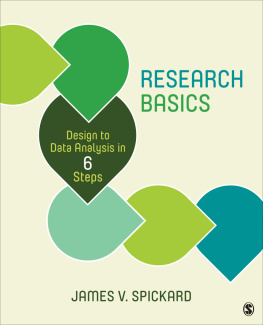
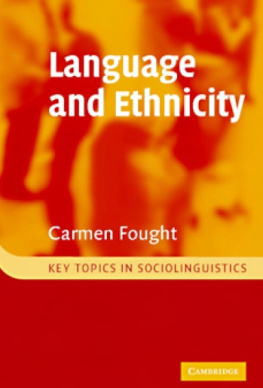


 The paper used in this publication meets the requirements of the American National Standard for Information SciencesPermanence of Paper for Printed Library Materials, ANSI Z39.48-1984.
The paper used in this publication meets the requirements of the American National Standard for Information SciencesPermanence of Paper for Printed Library Materials, ANSI Z39.48-1984.